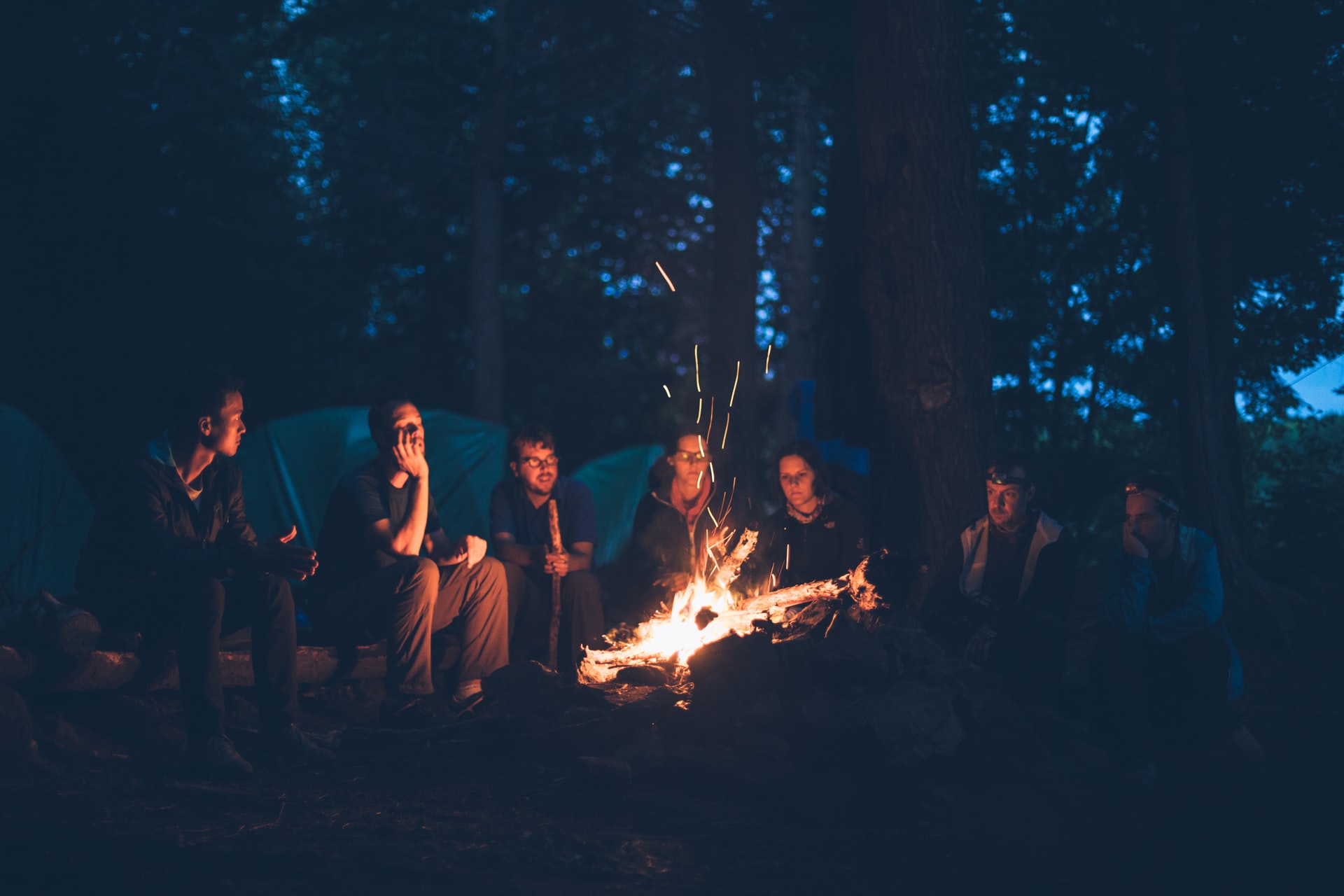It’s been over a year since the COVID pandemic started and it has sent us all on a roller coaster emotional ride. As more and more parts of the world are easing restrictions, you must be itching for an outdoor escape. A chance to be with nature once again, breathe some fresh air in and go for some hikes. Before you go, it’s important to check and adhere to the local policies and health protocols to ensure that you have a safe, hassle-free, and enjoyable trip. We’re still fighting the COVID-19 pandemic, but as things open up, here are things you should know when planning to go “camping post-COVID.”
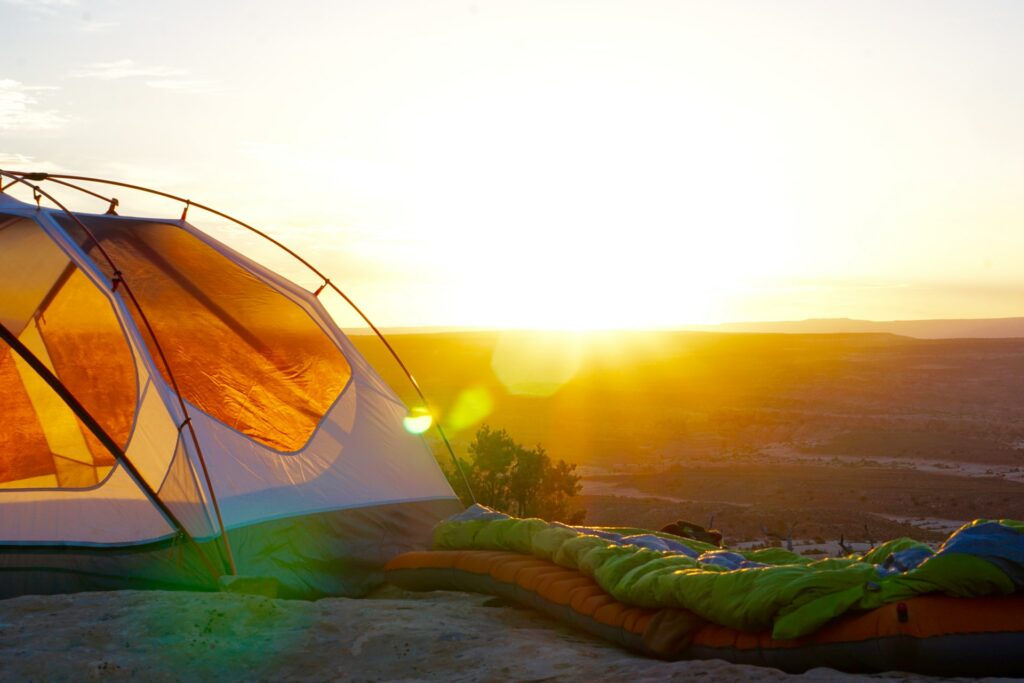
Photo by Jack Sloop on unsplash.com)
Keep Track of COVID-19 Updates
In the wake of this turbulent pandemic, camping is one of the few, best options for families and people of all ages to enjoy the outdoors.
It’s best to stay local to avoid the inconvenience and the risk associated with traveling. This way, you don’t have to check-in at the airport or take public transport.
Booking in advance is also important, as most campgrounds have a limited capacity to ensure social distancing. You should also check if the bathroom facilities are open and what services are available, according to the CDC.
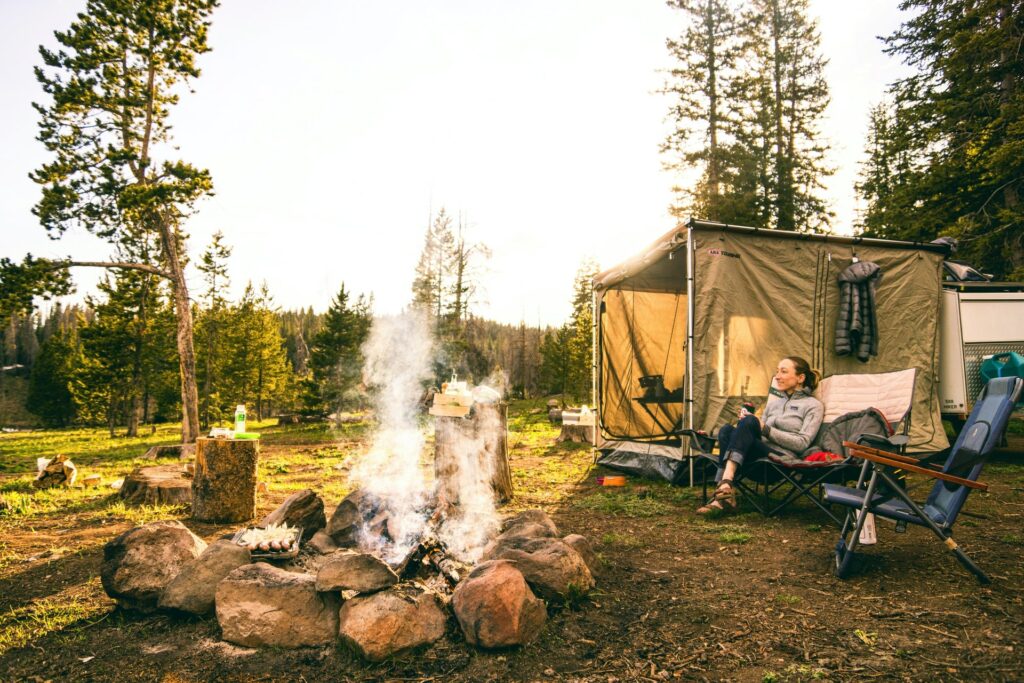
(Photo by Chris Holder on unsplash.com)
Keep a Hygiene Kit Nearby
Wherever you go, always, always bring a sanitizing travel kit that contains all the essentials like disinfecting wipes, hand sanitizers, and extra face masks.
The best way to protect yourself from viruses, germs, and bacteria is through frequent hand-washing. However, for the times when you don’t have soap and water nearby, the best thing you can do is to clean your hands with a sanitizer.
Sanitizing wipes are also very handy and can be used to disinfect surfaces like camping tables, door handles in the bathroom, toilets, etc. Some other things to pack in your travel hygiene kit are a body thermometer, nasal spray and eye drops, and eco-friendly soap.
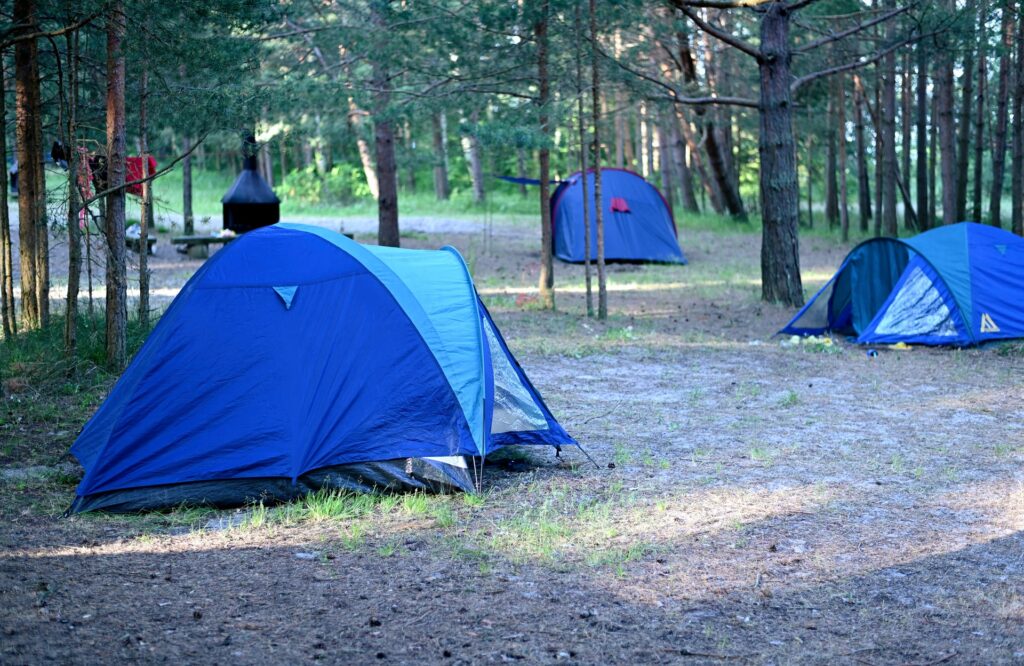
(Photo by Andres Siimon on unsplash.com)
Choose Your Campground Carefully
Not all campgrounds are the same.
The first step to choosing a campground is to check their policies on social distancing and other pandemic-related protocols. While they often spell “inconvenience”, these policies are necessary for keeping you and your family safe.
Find a campground that will provide plenty of space for each family or group. Also, remember that campgrounds are always busier in the summer or during weekends. That said, consider booking during weekdays when campgrounds are generally quieter and have fewer guests.
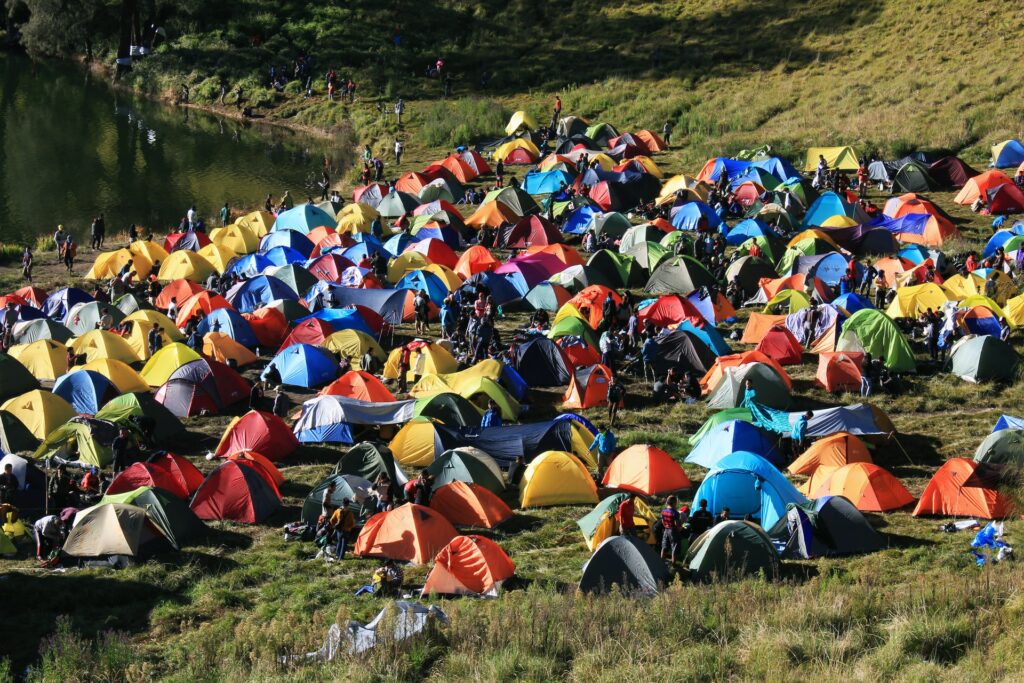
(Photo by Uzenk Doezenk on unsplash.com)
Sleep in Your Own Tent
Traveling with only your family members reduces the risk of contracting COVID-19.
In the campground, avoid sharing your tent with other people. Respiratory droplets can stay in contained spaces for several hours, which can increase your risk of exposure if that person has the virus.
Lastly, remember that the six-foot rule still applies. Whether it’s mandatory or not in the campground or even if you’re outdoors in the open air, observing social distancing is still the best way to fight the Coronavirus.
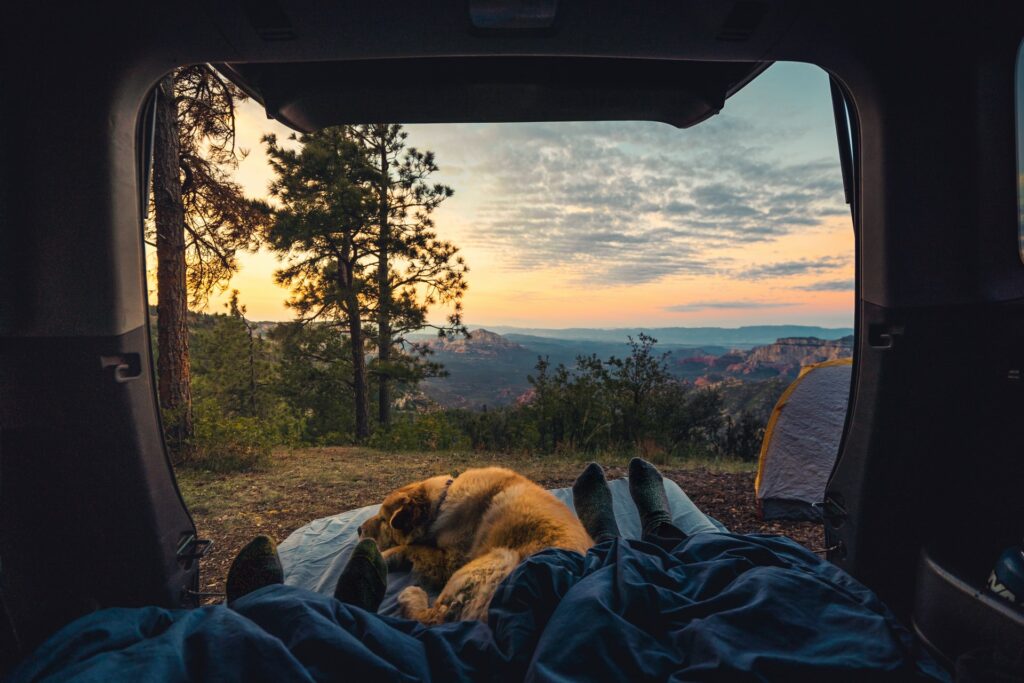
(Photo by Jimmy Conover on unsplash.com)
Keep the Car Solely for Your Immediate Family
This may go against everything we’ve learned about being environmentally friendly, but it’s very crucial to lowering your risk of infections.
If you’re preparing for a car camping adventure and traveling with people outside your household, drive separate cars going to the campsite to maintain social distance. It also goes without saying that you shouldn’t share tents and other personal stuff, including cutlery and serving dishes, with people outside your household, even if they are your friends. This applies to all items that touch your face, eyes, and mouth.
Take the Proper Precautions When Using Bathrooms
Be very careful about using shared bathrooms in campgrounds as they are usually enclosed and have poor ventilation.
When using public restrooms, make it quick as much as possible and always bring soap or hand sanitizer. Opening the door with toilet paper doesn’t hurt either
If you’re camping with kids, always escort them to and out of the bathroom as children tend to touch everything and put their hands on their faces.
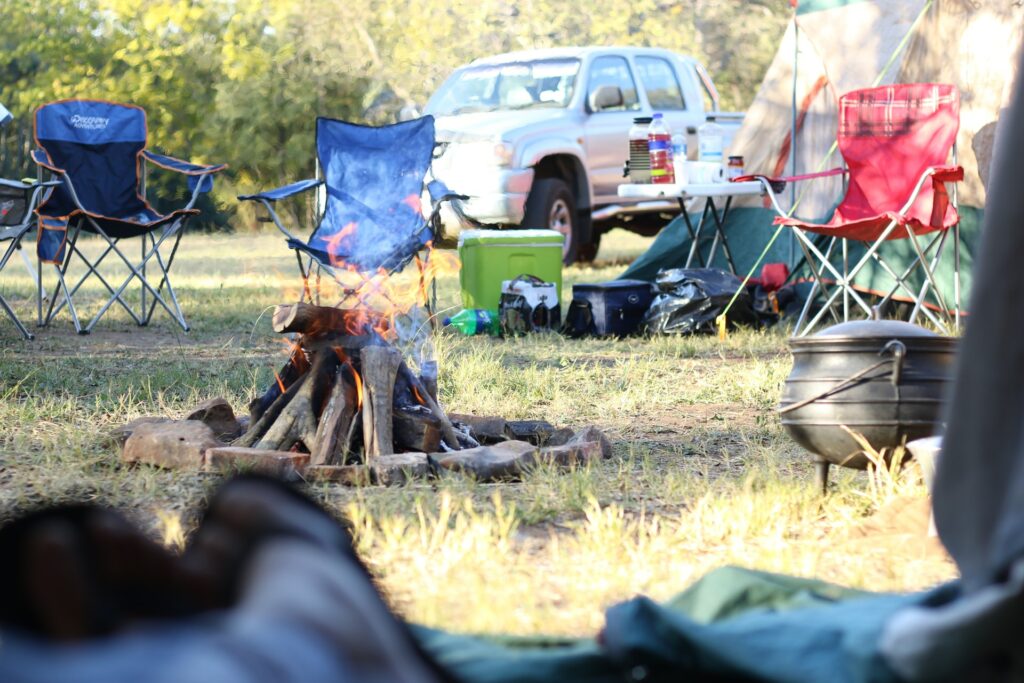
(Photo by Uzenk Doezenk on unsplash.com)
Pack Everything You Need and Leave No Trace
Avoid the need for frequent stopovers by ensuring that you have all the supplies needed before you leave.
When camping or traveling, it always helps to use a checklist so you don’t miss a thing. Two or three days before you leave for camping, do a big shop at your regular grocery store. Make sure you have enough to last your camping trip.
Aside from your usual camping gear like tents, clothes, and cooking supplies, don’t forget to stock up on masks, hand sanitizer, and disinfecting wipes.
Prepare meals and snacks in your kitchen, especially for kids. Pack them individually in ziplock bags or containers so you can just grab one and give it to your child when they’re hungry.
Lastly, don’t leave a trace. Be mindful and respectful of other people. Bring enough trash bags to clean and dispose of your garbage properly. Have a separate bag for potentially contagious waste like wipes, tissue, sanitary napkins, etc. Follow the campground’s rules for proper garbage disposal.
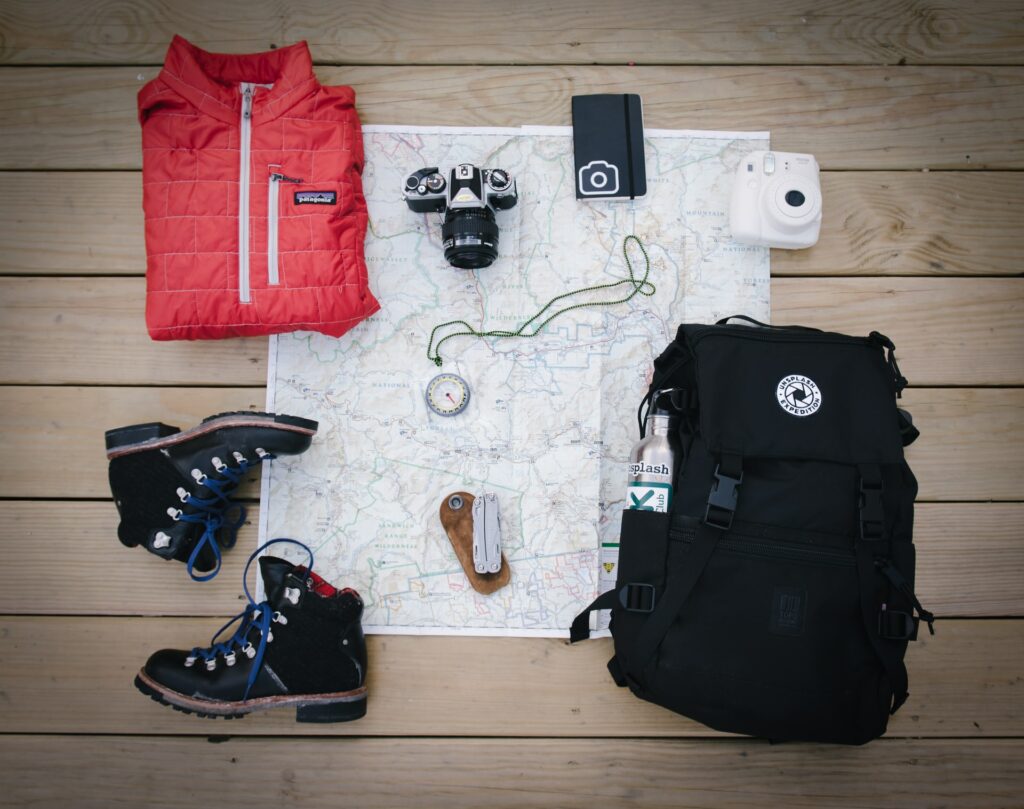
(Photo by Alice Donovan Rouse on unsplash.com)
Safe Camping post-COVID
Even while still needing to put some extra safety precautions in place, camping post-COVID is still pretty good. After so many months of being cooped up in your home, it’s time to get outdoors and get your much-needed dose of nature.
Camping is a great way to reset and shake off the stress that this whole pandemic thing has brought us.
However, to ensure that your camping post-COVID trip leans toward a ‘dream’ rather than a ‘disaster’, you have to take extra measures. By following the tips and suggestions above, you can protect yourself, your family, and other people against COVID-19.
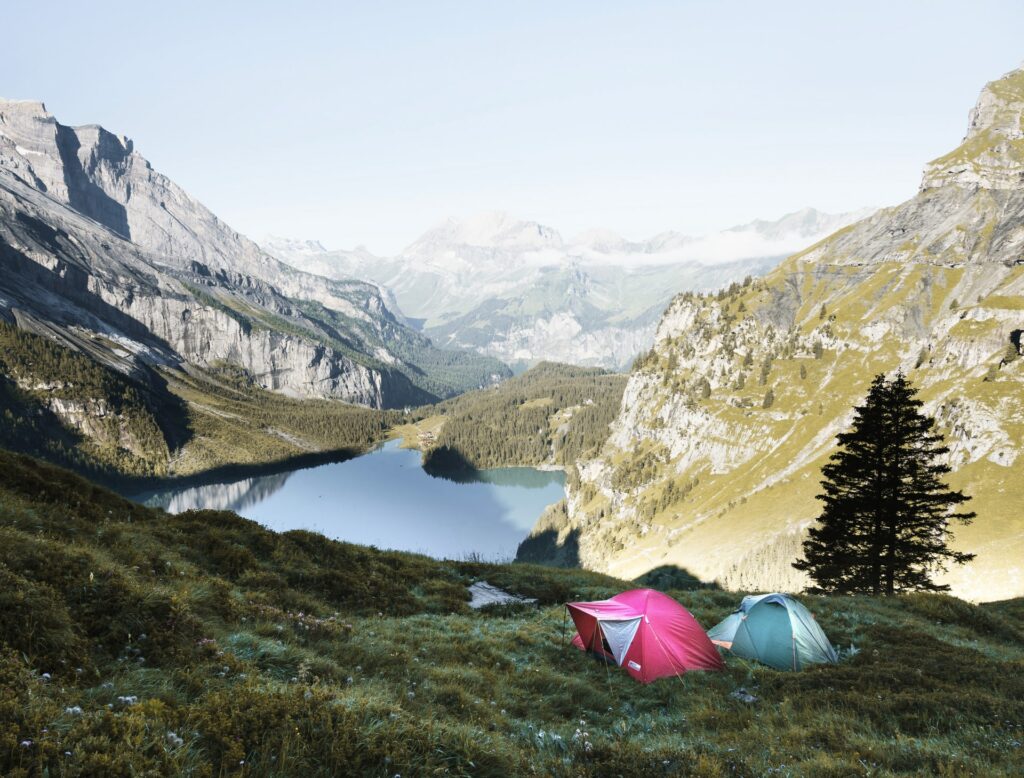
(Photo by Dino Reichmuth on unsplash.com)
For More:
- On our site: We love camping! Take a look at more of our many articles!
- AND on our site: Our writers have a lot of travel tips to share!
-All photos as credited. Cover photo by Mike Erskine on Unsplash.com.

